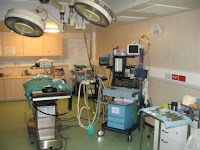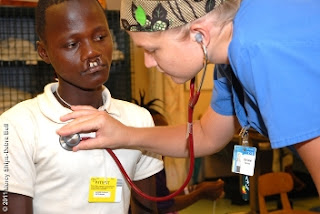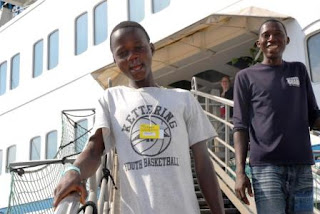
We arrived in Lomé, Togo (the capital) safely around 6pm Jan 5, 2012, after a full day of sailing from Tema, Ghana. We had a nice reception waiting for us on the dock when we arrived.
 |
| Carrying the Togolese flag down the gangway |
I want to share a little about my home for the next 6 months.

During the time of the slave trade, Togo was a popular trading center, earning the name “the Slave Coast”. In 1884, Germany declared Togoland a protectorate, but after WWI, it was given to the British & the French in 1914. Togoland was then split by the 2 countries into the French-speaking Togo & the English-speaking Ghana. Togo became an independent country in 1960, followed by a military coup in 1963 that put Eyadema Gnassingbe in power. This dictator served until his death in 2005. Elections were held soon after in a bid for democracy.
Togo is roughly the size of West Virginia at about 22,000 square miles, with a population size comparative to Washington State (roughly 6,619,000 people- or 302 people/sq mile). It is divided into 5 regions or states. French is the official language, but several tribal languages are the primary language in the different regions. Approximately one half of the population lives below the international poverty line of $1.25 a day. About 51% of the population has indigenous beliefs, 29% is Christian, and 20% Muslim.
Infant mortality was at 78 per 1,000 live births in 2005. Male life expectancy at birth was at 56 in 2005, whereas it was at 59.6 for females. There were 4 physicians per 100,000 people in the early 2000s. As of 2010, the maternal mortality rate per 100,000 births for Togo was 350, compared with 447.1 in 2008 and 539.7 in 1990. The under 5 mortality rate, per 1,000 births is 100 and the neonatal mortality as a percentage of under 5's mortality is 32.
 |
| The Harmattan Winds create a hazy, grey day |
The Harmattan winds (theses are winds from Northern Africa that pick up sand & fine dust particles from the Sahara & blow it across West Africa) have been blowing since we’ve gotten here, making it very hazy & the air is full of dust & sand, but it keeps the heat down, even though everything gets very dirty & dusty.
Things are progressing well as we get ready to start surgeries. I’ll update soon with some of the details what that entails.
Blessings

























